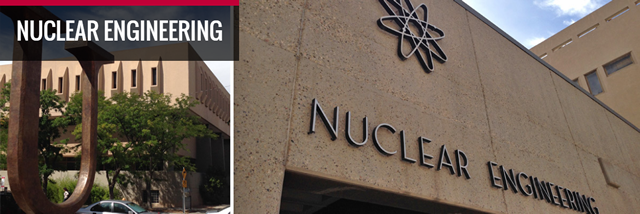
Nuclear Engineering ETDs
Publication Date
Spring 4-30-2019
Abstract
Properly accounting and safeguarding spent nuclear fuel are key components in the International Atomic Energy Agency’s mission of non-proliferation. Currently, no instruments are deployed that are able to verify the spent nuclear fuel contents of dry storage casks. Cosmic-ray muons provide an ideal probe for the heavily shielded casks due to their ability to penetrate thick, dense materials. Coulombic scattering of the muons, to first order, is proportional to the Z2/A of the material; this makes it especially sensitive to actinides, such as uranium and plutonium. The combination of these traits allows muons to be used to image and verify the contents of a sealed cask in situ. Here the analysis of the first muon scattering measurements of spent nuclear fuel dry casks is presented, which show a 2.3 σ confidence in the identification of a missing fuel bundle. Geant4 simulations are benchmarked against measurement data and show good agreement. Using the benchmarked simulations, the first study of computed tomography using cosmic-ray muon scattering is presented and further applied to the fingerprinting and monitoring of spent nuclear fuel casks. Finally, the feasibility of using cosmic-ray muons to perform a final verification of spent nuclear fuel-prior to permanent deposition in a geological repository-is investigated.
Keywords
Fuel Casks, Cosmic-Ray Muons, Computed Tomography
Document Type
Dissertation
Language
English
Degree Name
Nuclear Engineering
Level of Degree
Doctoral
Department Name
Nuclear Engineering
First Committee Member (Chair)
Adam Hecht
Second Committee Member
Cassiano de Oliveira
Third Committee Member
Douglas Fields
Fourth Committee Member
Christopher Morris
Recommended Citation
Poulson, Daniel C.. "INTERROGATION OF SPENT NUCLEAR FUEL CASKS USING COSMIC-RAY MUON COMPUTED TOMOGRAPHY." (2019). https://digitalrepository.unm.edu/ne_etds/90
